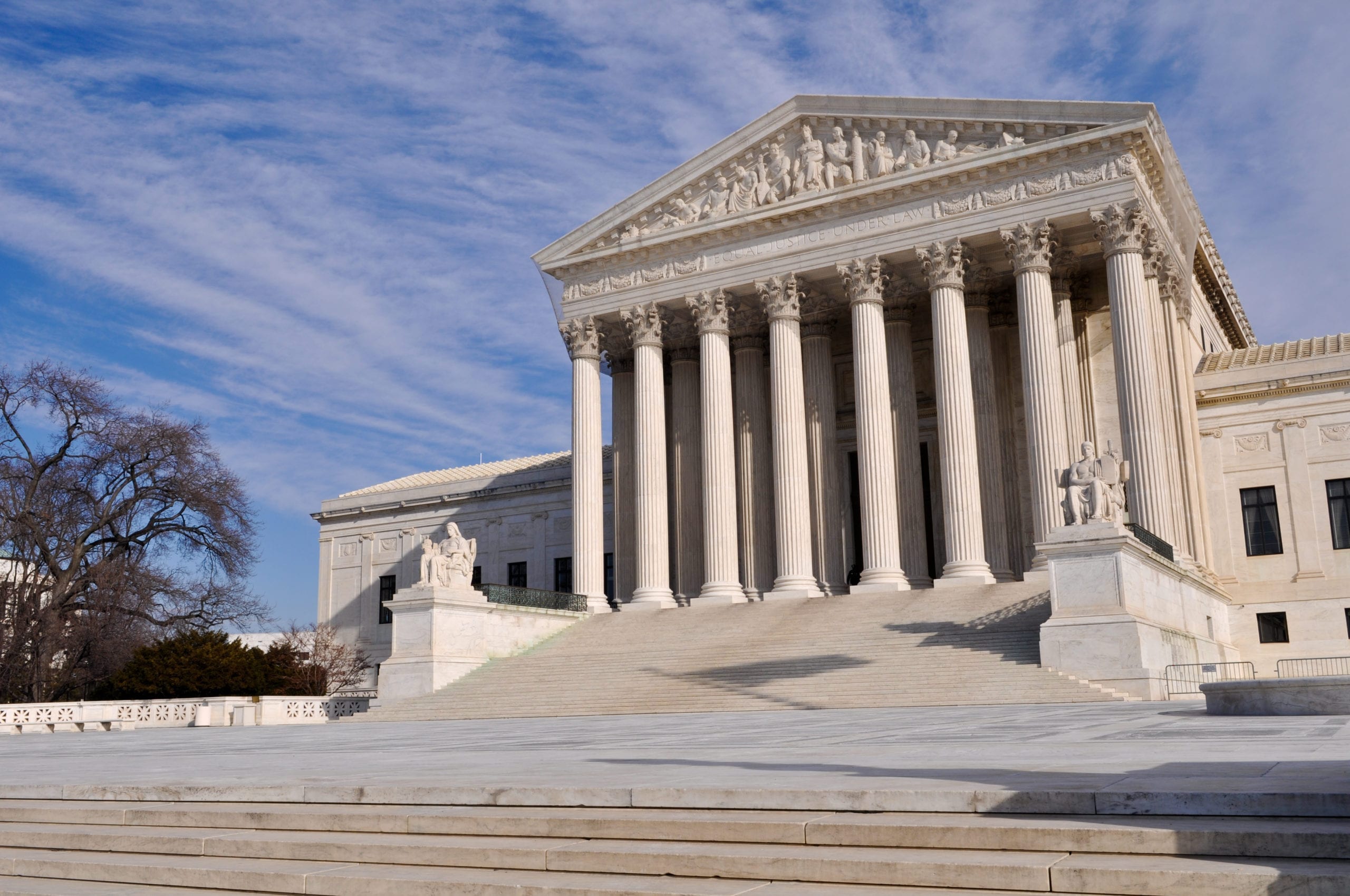“The best defense is a good offense,” is often attributed to George Washington, Sun Tzu, or Machiavelli. In litigation, the principle is often true: when sued, sue back. In fiduciary litigation, caution must be exercised, because in many disputes involving fiduciaries, there are mandatory attorney fee shifters. If a fiduciary is sued and wins, the fiduciary almost always is entitled to pay its attorneys out of the trust or estate. But when would a fiduciary ever bring suit against the beneficiaries of a trust? Beneficiaries do not owe any duties of prudence or loyalty to a trustee or executor. What could a beneficiary ever do to make a trustee think it wise to bring suit against the beneficiaries of a trust? How about beneficiaries bringing suit against a trust company and (allegedly) using scorched earth tactics against the trustee, including a media campaign? A case involving the works of Thomas Hart Benton answers these questions.
In UMB Bank v. Guerin, 22-3331 (8th Cir. 2024), not only did the trustee sue the beneficiaries of a trust it was administering, it sued them under the RICO statute, originally designed to sue mobsters and others involved in wide scale wrongful behavior. Unsurprisingly, it did not end well for the trustee.
What is RICO?
RICO, the Racketeer Influenced and Corrupt Organizations Act (“RICO”), 18 U.S.C. §§ 1961-1968, provides a private right of action for any person ‘injured in his business or property by reason of a violation of’ its substantive provisions. 18 U.S.C. § 1964(c). The prohibition at issue is 18 U.S.C. § 1962(c), which provides:
It shall be unlawful for any person employed by or associated with any enterprise engaged in, or the activities of which affect, interstate or foreign commerce, to conduct or participate, directly or indirectly, in the conduct of such enterprise’s affairs through a pattern of racketeering activity or collection of unlawful debt.
Dahlgren v. First Nat. Bank of Holdrege, 533 F.3d 681, 689 (8th Cir. 2008), cert. denied, 555 U.S. 1153 (2009).
Can RICO Be Used Against an Aggressive Litigant?
In the UMB Bank case, noted artist Thomas Hart Benton and his wife passed in 1975, leaving into a trust hundreds of works of art, real estate and personal effects. In 1999, UMB became the sole trustee of the trust. UMB Bank resigned as trustee after the trust beneficiaries sued UMB Bank, alleging mismanagement of the trust. As explained:
[the] Defendants compiled a list of grievances related to UMB’s management of the Trust and put together media talking points about UMB’s mismanagement. Communication between Defendants and Boyda largely occurred over text, email, and phone calls. These grievances formed the basis for the Probate case Defendants filed in December 2019 alleging that “UMB failed to marshal and probate all assets” of the Trust; failed to maintain complete records of Trust property; failed to get valid appraisals resulting in inadequate insurance coverage and sales of Trust property below market value; lost Trust property; and engaged in self-dealing and promotion. Defendants further alleged that “UMB’s lack of adequate preservation and storage . . . damaged the artwork and property” of the Trust; “UMB failed to maximize revenue through promoting, copyrighting, and licensing artwork;” and “UMB failed to prudently invest assets . . . thereby causing significant economic loss to the [Trust].” Defendants sought UMB’s removal as trustee and damages totaling $300 million.
The Defendants also engaged in a media campaign, and as explained, the allegations were that:
Defendants and their attorney discussed their allegations with the media. Jessie spoke by phone with the Wall Street Journal about UMB’s Trust management. The Journal published an article on December 18 quoting Jessie as saying that UMB failed to notify the family before selling Trust art and failed to get updated appraisals of art in the Trust. Boyda gave statements to two separate media outlets, KCUR and the Kansas City Star. Both published pieces on December 19 quoting Boyda’s statements largely reiterating the allegations in the Probate case petition. Neither Defendants nor their attorneys conducted additional interviews but these interviews were quoted in other outlets.
UMB Bank brought suit under the RICO act against certain of the trust beneficiaries. The Eighth Circuit summarized the allegations as follows:
[a]ll of Defendants’ allegations in the Probate case are false, and that Defendants made the allegations in the Probate case petition and reiterated them to the media knowing them to be false. Defendants’ inquiries into Trust administration, filing of the Probate case, and communications with the media are part of a years-long campaign “to bring public pressure on UMB to pay money to Defendants that they could use to address their increasing financial demands and those of the Lyman Family without liquidating additional portions of the corpus of the Trust or their individual art assets and/or to allow Defendants to force UMB to resign as trustee of the Trust.” UMB alleges that in perpetrating this scheme, Defendants have violated RICO with racketeering activity including acts of mail, wire, and bank fraud. Count I alleges that all of this conduct qualifies as mail and wire fraud pursuant to 18 U.S.C. §§ 1341 and 1343 and Count II alleges the same conduct also qualifies as bank fraud under 18 U.S.C. § 1344 because UMB is a federally insured bank.
The concept of “overcharging” in criminal law is well known – and aggressive prosecutor charges a defendant with the most extreme possible criminal violations, in an attempt to force a plea agreement to a lesser charge. A similar concept exists in civil law, where a litigant chooses to pursue the most extreme causes of action against a defendant, to coerce a settlement, to maximize a recovery, or simply because it feels good to do so. Many of the most extreme causes of action, such as RICO or civil theft, have damage multipliers. So why not take a shot with the most aggressive cause of action possible? Two reasons. First, many of the aggressive causes of action have heightened burdens of proof. Florida’s civil theft statute, for example, requires that the case be proven with “clear and convincing evidence,” which is much harder to establish than the normal civil burden of proof of “more likely than not.” Second, because of the possibility of an outsized damage award, judges tend to hold a plaintiff to a strict interpretation of the law.
How Can a Trustee Prove a RICO Violation?
As explained by the Court, UMB Bank was required to prove the RICO violation, as follows:
When pled as RICO predicate acts, mail and wire fraud require a showing of: (1) a plan or scheme to defraud, (2) intent to defraud, (3) reasonable foreseeability that the mail or wires will be used, and (4) actual use of the mail or wires to further the scheme.” Mail and wire communications “are insufficient to establish the [RICO] continuity factor unless they contain misrepresentations themselves.” A pattern of racketeering activity “requires at least two acts of racketeering activity.”
The Court summed up UMB Bank’s allegations, as follows:
Defendants committed four related predicate acts that constitute mail, wire, and bank fraud and establish a pattern of racketeering activity: (1) instructing their attorney to collect records about UMB’s actions as trustee for the purpose of ousting UMB from that position; (2) knowingly communicating false claims about UMB’s behavior among themselves and with their attorney; (3) communicating the substance of their allegations to the media in December 2019; and (4) filing and prosecuting a Probate case that knowingly advanced false allegations against UMB.
The Court then rejected most of UMB Bank’s allegations, as follows:
Demanding Records
[t]rust beneficiaries instructing their attorney to collect trust records was not fraud, and it preceded any fraud that allegedly occurred after the Trust records were obtained. Defendants, the Trust’s beneficiaries, wanted the trustee to meet their financial needs; the trustee refused repeated requests for increased distributions. The Trust settlor was dead and UMB, the sole trustee, would not exercise its discretion to heed their requests. So the beneficiaries told their attorney to gather information about UMB’s management of the Trust, which might yield information that could bring public pressure to bear on the trustee, or even provide a basis to petition the probate court to remove the trustee because of Trust mismanagement. One can view this as playing nasty trusts and estates hardball, but it was not mail, wire, or bank fraud. “We have . . . rejected attempts to convert ordinary civil disputes into RICO cases.”
Communicating False Claims to Themselves and Their Attorneys
In I.S. Joseph Company, Inc. v. J. Lauritzen A/S, we affirmed the dismissal of a RICO claim by a shipper who alleged that defendants committed the predicate act of extortion when they threatened to sue the shipper’s bank “for the purpose of terrorizing and intimidating [the shipper] into meeting [their] demands” to pay an outstanding debt. 751 F.2d 265, 266 (8th Cir. 1984). We concluded that, even if the threat to sue was groundless and made in bad faith, it did not meet the elements of the federal crime of extortion. “If a suit is groundless or filed in bad faith, the law of torts may provide a remedy. Resort to a federal criminal statute is unnecessary.”
The same reasoning applies to communications between Defendants and their attorney about whether to pressure a trustee to increase distributions, even if the communications ended in an allegedly groundless suit for Trust mismanagement. This is not a “blanket exemption of litigation activities” from the mail, wire, and bank fraud statutes. Because UMB does not allege — certainly not with particularity — that any criminal activity tainted these private attorney-client communications over how to pressure UMB into being more responsive to the beneficiaries’ requests, that activity cannot be conduct forming a predicate act of fraud under RICO.
Communicating With the Media
[UMB Bank] alleges that Defendants knowingly made false statements to the media. These allegations almost certainly state a claim for defamation under state law. But [UMB Bank] further alleges that statements in the Wall Street Journal, KCUR, and Kansas City Star interviews were made in furtherance of Defendants’ overall scheme to “pressure, harass, embarrass and injure UMB through fraudulent statements and claims to force UMB to pay millions of dollars to Defendants so that they could avoid having to liquidate Trust assets to support their financial demands.” If accompanied by sufficient allegations of a pattern of racketeering activity, these statements might qualify as predicate acts of mail, wire, or bank fraud.
Bad Faith Litigation
“[I]n the absence of corruption . . . allegations of frivolous, fraudulent, or baseless litigation activities — without more — cannot constitute a RICO predicate act.” Kim v. Kimm, 884 F.3d 98, 104 (2d Cir. 2018) (collecting cases); accord Snow Ingredients, 833 F.3d at 525 (“In the absence of corruption . . . prosecuting litigation activities as federal crimes would undermine the policies of access and finality that animate our legal system.”) (quotation omitted). As one court noted, to hold otherwise “would result in the inundation of federal courts with civil RICO actions that could potentially subsume all other state and federal litigation in an endless cycle where any victorious litigant immediately sues opponents for RICO violations.” Curtis & Assocs., P.C. v. L. Offs. of David M. Bushman, Esq., 758 F. Supp. 2d 153, 173 (E.D.N.Y. 2010).
Moreover, the RICO statute provides for private enforcement actions and treble damages, which can be threats that chill the right to petition the courts. See Int’l Bhd. of Teamsters, Loc. 734 Health & Welfare Tr. Fund v. Philip Morris, Inc., 196 F.3d 818, 826 (7th Cir. 1999) (Easterbrook, J.) (applying the antitrust Noerr-Pennington doctrine to RICO claims); Sosa v. DIRECTV, Inc., 437 F.3d 923, 933-42 (9th Cir. 2006) (same); I.S. Joseph Company, 751 F.2d at 267. Like our sister circuits in Kim and in Snow Ingredients, we are not holding that litigation activities can never serve as a RICO predicate, only that UMB’s conclusory, unpersuasive assertions do not provide a reason not to apply the general rule in this case. See Black v. Ganieva, 619 F. Supp. 3d 309, 343-44 (S.D.N.Y. 2022).
Pattern of Racketeering
The Court held out the possibility that the media communications might constitute sufficient acts of activity under the RICO statutes. But RICO requires more than bad acts. It requires a pattern. As explained by the Court:
“[T]o prove a pattern of racketeering activity a plaintiff . . . must show that the racketeering predicates are related, and that they amount to or pose a threat of continued criminal activity.” Continuity in this context refers “either to a closed period of repeated conduct, or to past conduct that by its nature projects into the future with a threat of repetition.” To satisfy the RICO continuity element, therefore, a plaintiff must provide evidence of multiple predicate acts occurring over a substantial period of time (closed-end continuity) or evidence that the alleged predicate acts threaten to extend into the future (open-ended continuity).
In rejecting that the requisite pattern had been established, the Court explained as follows:
We agree with the district court that three predicate acts, spanning only a few days and targeting a single victim (UMB) is insufficient to show a plausible claim of a closed-end pattern of racketeering.
As to open-ended continuity, UMB argues that “the [P]robate case is ongoing, Defendants’ actions against UMB are ongoing, and they refuse to correct their prior statements.” In addition, the Lyman Family enterprise “is ongoing and continues its half-a-century tradition of criminal activity.” As the district court noted, the alleged qualifying predicate acts — fraudulent communications with the media — “occurred in a discreet timeframe, and pertained to a specific, non-replicable event: the filing of the Probate case.” “To establish a RICO pattern it must also be shown that the predicates themselves amount to, or that they otherwise constitute a threat of, continuing racketeering activity.” H.J. Inc., 492 U.S. at 240 (emphasis in original). Here, there is no apparent threat that the qualifying predicate acts will continue into the future — UMB has voluntarily resigned as trustee. UMB has failed to show a plausible claim of open-ended continuity.
And therein lies the problem with using too aggressive civil litigation tactics. Every single element must be proven against every single defendant. As summarized by the Court:
UMB’s failure to plausibly allege a pattern of racketeering activity, an element of its RICO claim against each defendant, means that its entire claim fails, including the claim in Count III of the FAC that “Defendants agreed and conspired to violate 18 U.S.C. § 1962(c), mail, wire and bank fraud, by participating in an enterprise engaged in a pattern of racketeering activity.” See Craig, 528 F.3d at 1028. To successfully allege conspiracy to violate RICO under 18 U.S.C. § 1962(d), UMB must first “prove the elements of a RICO violation.” Rosemann v. St. Louis Bank, 858 F.3d 488, 500 (8th Cir. 2017).








